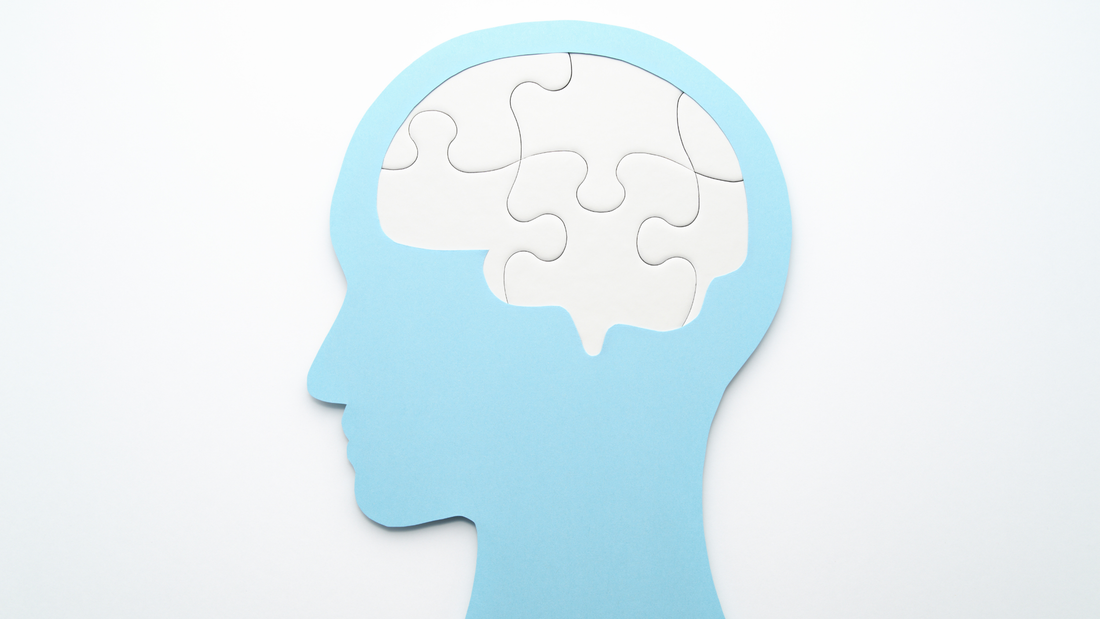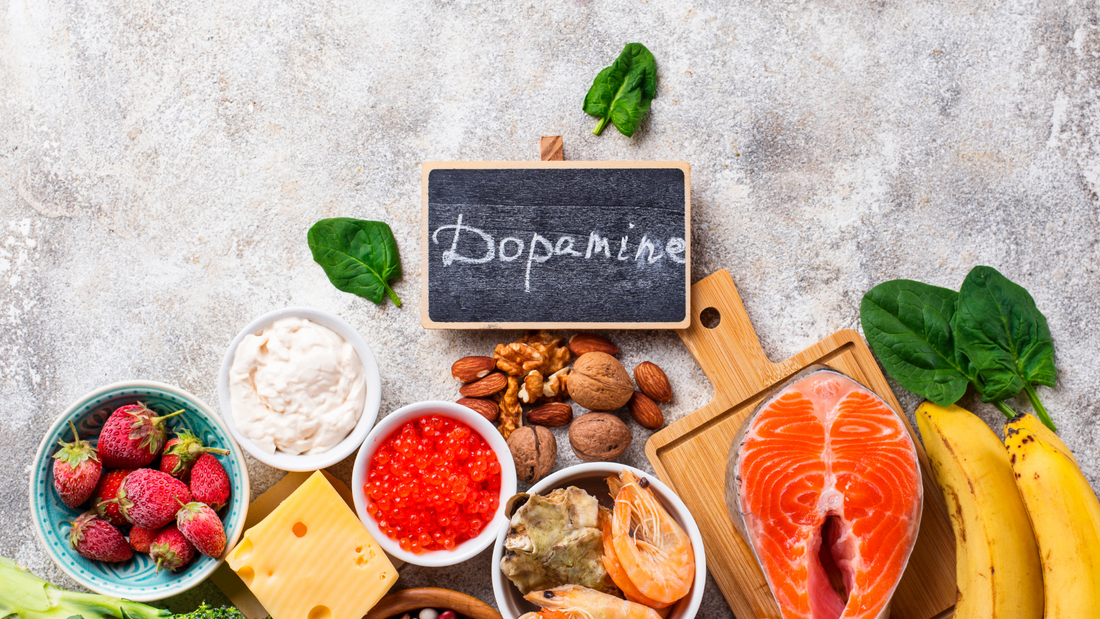|
It’s no secret that dopamine is important for your mental health. It’s most known as the “feel-good” neurotransmitter, and while it does play a role in feelings of pleasure, it has many other remarkable functions. In addition to sending signals in your brain, dopamine affects physical and behavioral functions such as movement, memory, sleep, motivation, mood, and thyroid function. Let’s look at dopamine’s many functions, symptoms of low dopamine, and how to increase dopamine levels in your body. What is Dopamine Dopamine is a neurotransmitter which means that it sends messages between neurons in your brain and allows certain nerve cells to communicate with one another. Dopamine is produced in the midbrain, in two regions called the tegmental area and substantia nigra. Dopamine is used in the brain and the body through four pathways:
Symptoms of Low DopamineWith links to conditions like depression and Parkinson’s disease, symptoms of low dopamine are similar to these conditions. Some symptoms of low dopamine levels include:
Low dopamine manifests differently depending on how the brain pathways are affected. For example, one person may experience mental health symptoms while another person may experience physical symptoms. A physician can help to look at your symptoms, lifestyle factors, and medical history to determine if you have a condition related to low levels of dopamine. What Causes Low Dopamine Several factors may be responsible for reduced dopamine in the body. These include sleep deprivation, obesity, drug abuse, poor diet, and stress. In addition, age, health status, brain injuries, and medical conditions can also change dopamine levels. How to Increase Dopamine LevelsDopamine levels are typically well regulated within the body, but if you are experiencing symptoms there are some things you can do to naturally increase dopamine levels. 1. ExerciseExercise has been found to boost dopamine levels when performed regularly. Studies have shown that hour-long yoga sessions and 30-minute high-intensity training sessions can improve mood, memory, and motor control. 2. Eat protein with each meal Dopamine is produced from the amino acids tyrosine and phenylalanine, both of which can be obtained from protein-rich foods. Try to eat protein-rich foods like turkey, beef, eggs, dairy, and legumes at each meal. 3. Get enough sleepStudies show that dopamine is released in large amounts in the morning when it’s time to wake up. Levels then naturally fall in the evening when it’s time to go to sleep. However, a lack of sleep appears to disturb this natural cycle. For adults, the National Sleep Foundation recommends 7–9 hours of sleep every night for optimal health along with good sleep hygiene. 4. Get outside in the sun .It’s well known that periods of low sun exposure can lead to reduced levels of neurotransmitters, including dopamine. This is crucial to prevent Seasonal affective disorder (SAD), a condition in which people feel sad or depressed during the winter season. Studies show that spending at least half an hour outside each day can help to boost dopamine levels. 5. Dopamine boosting supplements Your body requires several vitamins and minerals to create dopamine including iron, niacin, folate, and vitamin B6. If your body is low in one or more of these nutrients, you may have trouble making enough dopamine. You can have blood work completed to determine if you are deficient in any of these nutrients. If so, you can supplement and focus on your nutrition to increase dopamine levels. 6. Practice meditationOngoing stress has been found to decrease dopamine levels and damage the receptor sites for dopamine. Yet, meditation can help by reducing the stress levels in your brain and by decreasing inflammation. Mindfulness meditation teaches you to be calm and helps you to cope with stressful situations. Try these mindfulness exercises throughout your day. 7. Avoid processed foods and sugar When you eat processed foods, sugar, and unhealthy fats your brain’s reward system is triggered to release dopamine. Yet, when eaten repeatedly the dopamine receptors will start to down-regulate and the brain will begin to remove dopamine receptors. Fewer dopamine receptors and less dopamine activity lead to feelings of unhappiness and other symptoms of low dopamine. A balanced diet that contains adequate protein, vitamins and minerals, probiotics, and a moderate amount of saturated fat can help your body produce the dopamine it needs. Reach Out for Help Dopamine is an important brain chemical that influences your mental and physical health. Consequently, low dopamine can have a significant impact on your quality of life.
Therapy can help you manage the symptoms of low dopamine. For instance, you can learn to better manage challenges like depression and anxiety. Therapy can also help you to cope with symptoms of an illness like Parkinson’s. If you would like to speak with a professional, please reach out to schedule an appointment.
0 Comments
|
AuthorAs a therapist, Jorie Miklos enjoys helping people reach a level of personal happiness and satisfaction that they didn’t think was possible. Archives
January 2023
Categories |
|
© COPYRIGHT 2020. ALL RIGHTS RESERVED.
|
MENU
|
MENTAL HEALTH CRISIS LINES
If you need immediate help, call 911 or one of the crisis numbers below:
Crisis Line: 312-563-0445 Suicide Hotline: 1-800-273-8255 |
CONTACT
Jorie Miklos, MA, LCPC
Autumn Leaf Counseling 5757 S. Madison St. Hinsdale, IL 60521 630-228-6011 [email protected] |
Website created by Ready Set Go Website Design




 RSS Feed
RSS Feed
